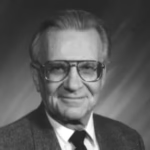The Great Commission in Matt. 28:19–20 outlines the basic task of the local assembly, and the rest of the New Testament gives examples and instructions of how New Testament churches should impact the culture of their day.
The Lord had already indicated His desire to have the disciples evangelize and thereby make disciples in the whole world. It is interesting to note that Acts 1:8 is not an imperative but is, instead, a promise that the believers will be witnesses when the Holy Spirit comes upon them. Thus, a true witnessing requires the power of the Holy Spirit, and the one who has that power is bound to witness (Acts 4:20). Impelled by the Holy Spirit, the disciples did not go to some public meeting place and invite the world to come and hear the good news. They took the good news to the people. This would seem to argue for a ministry to bus the saints out to where the unbelievers are, not just using the buses to bring the unbelievers into the assembly.
No sooner had the witnessing begun to carry the gospel that Satan created opposition, confusion, and competition. The one thing, aside form the power of the Holy Spirit, that made the ministry of evangelism so effective in the New Testament, is that every disciples was a witness. After the prayer meeting of Acts 4, “They were all filed with the Holy Ghost, and they spake the Word of God with boldness: (Acts 4:31). By Acts 8:4 Stephen was martyred for his faith and the believers were scattered and carried the gospel wherever they were driven. By Acts 9:1 others had died.
In more contemporary times, Satan has adapted his strategy to the circumstances. One ploy Satan uses is to so immerse the believer in the world that the unbeliever can see no significant difference between the saint and himself. The unsaved hears the lofty message of salvation and transformation, looks to the individual believer, and concludes that the gospel is a beautiful concept but does not work.
Another method Satan employs is to develop a misconception of true witness. Instead of testifying of Christ and His resurrection power, the believers impress the unsaved with their church, its distinctive musical program, its fine attendance, and its good fellowship. But the only witnessing empowered by the Holy Spirit is witnessing of Christ. And it is this witness that is increasingly, tragically silent.
The truth is that the Christian received new life from God. The spiritual life within him is the mark that distinguishes him from the unsaved world about him. And it is to this new life that he witnesses in every possible dimension. When the ministry of the Word continues, the numbers of disciples increase automatically, as the apostles learned (Acts 6:4–7). Our primary concern is not to get more converts but to send out more Christians to witness the gospel in the power of the Holy Spirit. This is far removed from man-centered programs of evangelism that needlessly anger the unconverted and repel believers who are sensitive to the leading of the Holy Spirit.
For the local church that wants to produce, the book of Acts gives several practical lessons to apply today. First, God is not bound by the assembly’s schedule or method. The 120 disciples were to wait for the Holy Spirit to do the work of Acts 1:8. And that program succeeds as a church carries it out in God’s time and with His enablement.
Second, personal experience makes a convincing witness. This is what Peter meant in Acts 2:32 when he preached the resurrection; the apostles had seen the risen Christ. They could not but speak the things that they had seen and heard (Acts 4:20).
Third, whenever the Holy Spirit is at work, the believers can expect opposition by Satan. This opposition ranges from mocking (Acts 2:13), to imprisonment (4:3), to flogging (5:40), to martyrdom (7:60).
Fourth, the Word of God is the seed that produces life in what had been an unbeliever. Peter, in Acts 2, quotes from Joel 2, Psalm 16, and Psalm 89 to explain the message of salvation that he preached. We can trust the intrinsic power in the Word itself to do its work.
Fifth, the believers in Acts were together in fellowship, prayer, and doctrine (Acts 2:42–44, 46,47). It was out of this fellowship that legitimate witness came. A detached Christian rarely witnesses effectively nor will he remain spiritually strong.
Sixth, the believers were joyful. Even after martyrdom and the scattering of the believers, they had great joy (Acts 8:8). Even in spite of rejection, the disciples were continually filled with joy and with the Holy Spirit (Acts 13:25). And in the face of doctrinal opposition, the work of God flourished, and there was great joy (Acts 15:3).
The Scriptures are specific to our purpose in the world. The believers here are not primarily to make a living or to build material security for our families. Nor do we exist to save America or to perpetuate a democratic system. The primary task of the local church in the world is to make disciples (Matt. 28:19; Acts 14:21, 22). The sooner we realize that we are strangers and aliens on this earth (1 Pet. 2:11; Heb. 11:13), the better we will fulfill our purpose on earth.

Dr. Ralph G. Turk
Dr. Ralph G. Turk (D.Min., Trinity Evangelical Divinity School) was a dedicated pastor and theologian known for his passion for Christ, compassion for people, and zeal for ministry. Born in Yale, MI, he served in various pastoral roles across California, Colorado, Illinois, and Minnesota before joining the faculty at Faith Baptist Bible College in Ankeny, Iowa, in 1988.
Dr. Turk was a professor and briefly served as dean at the seminary he attended, where he hosted memorable seminars, including one on Kierkegaard in his living room. He passed away in 2002, leaving behind a legacy of faithful service and commitment to theological education.